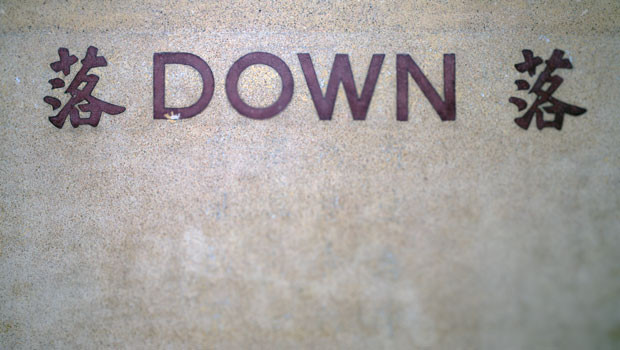Asia report: Stocks fall further as investors brace for inflation data

Markets in the Asia-Pacific region continued their sell-off on Monday as investors braced themselves for a week filled with crucial economic data releases and South Korea’s third-quarter gross domestic product (GDP) figures.
The week ahead was set to be marked by inflation readings from Australia, Japan, and South Korea.
“Asian equity markets saw declines, partially reflecting the losses in European and US markets from Friday,” said TickMill market analyst Patrick Munnelly.
“However, futures for European and US equities were trading higher.
“Meanwhile, both oil and gold prices decreased as investors continued to assess the ongoing volatile situation in the Middle East.”
Munnelly said market participants were monitoring the release of two hostages by Hamas and a delay in Israel’s ground invasion of Gaza.
“Despite these developments, the risk of a broader escalation of the conflict, including potential concerns at Israel’s northern border, is likely to keep markets on edge.”
Regional markets a sea of red, Hong Kong and NZ closed for holidays
In Japan, the Nikkei 225 declined by 0.83%, settling at 30,999.55 points, while the Topix index slipped by 0.75% to 2,238.81 points.
Notable losers on Tokyo’s benchmark included Pacific Metals, down 4.83%; Nippon Sheet Glass, off 3.94%; and Oki Electric Industry, which lost 3.07%.
In China, the Shanghai Composite and Shenzhen Component indices experienced declines of 1.47% and 1.51%, respectively, to 2,939.29 points and 9,425.98 points.
Leading the list of significant losses in Shanghai were Foxconn Industrial Internet, tumbling 10.02%, and GuangDong Super Telecom, which was 10.01% weaker.
Markets in Hong Kong remained closed for the Chung Yeung Festival holiday, while traders in New Zealand enjoyed the day off for Labour Day.
South Korea’s Kospi dipped 0.76% to settle at 2,357, with substantial losses of 23.93% for Kiwoom, while Hyundai Engineering & Construction was 7.98% lower.
Australia’s S&P/ASX 200 index also headed downward, decreasing 0.82% to 6,844.10 points.
Among the notable decliners in Sydney were New Hope Corporation, off 8.5%, and Pilbara Minerals, behind by 7.25%.
In currency markets, the dollar was last 0.03% stronger on the yen, trading at JPY 149.90, while it rose 0.07% against the Aussie to AUD 1.5848 and increased by 0.15% on the Kiwi to change hands at NZD 1.7184.
On the commodities front, Brent crude futures were last down 0.17% on ICE at $91.91 per barrel, while the NYMEX quote for West Texas Intermediate dropped 0.39% to $87.74.
Inflation jumps in Hong Kong, Korean exports buoyant in October
In economic news, Hong Kong’s inflation rate for September exceeded expectations, as the city’s consumer price index (CPI) jumped 2% year-on-year.
That figure notably outpaced the 1.8% growth anticipated by economists polled by Reuters and the 1.8% increase recorded in August.
Hong Kong’s statistics bureau reported widespread price hikes across most sectors, except durable goods.
Leading the charge in price increases were alcoholic drinks and tobacco, clothing and footwear, dining out and takeaway food, with a particularly striking 18.9% year-on-year rise in alcoholic beverage prices.
Meanwhile, Singapore’s CPI displayed a 4.1% year-on-year upswing in September, marking a slightly faster rate of increase compared to the 4% recorded in August.
The development also marked the first ascent in the headline inflation rate since April.
However, the Monetary Authority of Singapore’s (MAS) core inflation measure experienced a more modest rise of 3% year-on-year - lower than August’s 3.4% and short of the 3.1% forecast by economists in Reuters polling.
Elsewhere, exports from South Korea in the first 20 days of October rose 4.6% year-on-year after growing 9.8% over the same period in September.
On a working-day adjusted basis, exports rose sharply by 8.3%, compared with a fall of 7.9% in September.
The notable increase in the working-day adjusted measure was attributed to favourable base effects and some improvements in regional activity.
Economists at Pantheon Macroeconomics said the magnitude of the future improvements in Korean exports hinged on the strength of the rebound for semiconductor demand and the regional demand recovery, particularly from China.
“In any case, the lower base from last year will continue to be favourable for export growth in the fourth quarter,” they said.
“We expect aggregate demand from advanced economies to remain soft in the coming months, thanks to elevated interest rates raising the debt servicing burden of households in those countries.”
Pantheon said China’s recovery was still fragile, although the effect of previously-deployed stimulus was gradually being seen.
“Admittedly, the demand and sentiment of Chinese households will be constrained by the performance of the property and other asset markets, which will weigh on Korea’s exports in the near term.”
Reporting by Josh White for Sharecast.com.